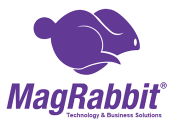Business POC & Consultant
With our Business Consulting & POC development services, we offer
our expertise and dedication to help you with your software projects. We help you:
– Understanding the market needs better
– Test the feasibility of your idea
– Evaluate the effectiveness of your software solution
– Improve your software performance with our advice
Research
& Development
Business Proof
of Concept
Business Proof
of Concept
Minimum
Viable Product
Software Development
With a talented IT group, standard operating process, and Japanese-standard quality, Luvina Software will be the ‘partner of choice’ for your software development project.
We are capable of completing the project from the basic design step to delivering a bug-free product.
With the commitment to ensure the highest quality and deadline of the project, we look forward to working with you.
Desktop/Web
Application
Enterprise
Customize Solution
Enterprise
Customize Solution
Native &
Hybrid
Mobile Application
Software Migration
Luvina’s software migration services ensure the seamless transition of your applications and data from one platform or environment to another. Whether you’re upgrading to the latest software versions, moving from on-premises to the cloud, or adopting new technologies, our experienced team ensures a smooth migration process.
Software
Version Up
Software
Re-engineering
System Migration
Software Testing
Software testing is a method of evaluating and verifying that a computer program element or application is working as expected. Simple applications can be subjected to various tests.
A test management plan helps prioritize which types of testing are most important given the time and resources available.
Test adequacy is optimized by running the fewest tests to detect the most abandons.
For nearly 19 years, Luvina Software has tested hundreds of programs to help clients prevent errors, reduce remediation costs, and accelerate execution.
Manual Testing
Automation
Testing
Automation Testing
Performance Testing
Software Maintenance
Software maintenance is performed after a software system discharge for an assortment of reasons, counting generally program enhancement, settling issues and bugs, and making strides in execution.
Luvina Software has been maintaining software systems for hundreds of companies since 2004. We offer assistance to companies to alter, settle and overhaul clients’ software systems to meet their wants.
System
Analyzing
Feature Development
& Enhancement
Feature Development
& Enhancement
Reverse
Engineering
& Documenting
DevOps Services
Luvina’s DevOps services offer a comprehensive approach to software
development and IT operations. We enable seamless collaboration between development and IT teams, automate processes, and ensure faster and more reliable software delivery.
By implementing our DevOps solutions, you can reduce deployment time, minimize errors, and enhance overall productivity, finally achieving great business success.
System
Monitoring
Continuous Intergration
– Continuous Delivery
Security
Management
Performance
Optimization
Service Desk
Luvina’s Service Desk is an IT service that goes beyond traditional IT help desks. We provide comprehensive IT support, managing and resolving issues efficiently. Our dedicated team ensures minimal downtime and smooth operations, enabling your business to focus on your core objectives while we handle IT-related concerns.
Technical
Support
IT Help Desk
IT Help Desk
Data Engineering
Luvina’s Data Engineering services are designed to empower businesses with the efficient management and utilization of their data assets. Luvina’s Data Engineering services contain a range of essential functions. We excel in:
– Seamlessly transferring data from one platform to another
– Creating compelling visual presentations of complex data
– Transforming raw data into valuable insights. With our expertise, you can optimize data management, enhance decision-making, and unlock the full potential of your data assets.
Data
Migration
Data Visualization
Data Visualization
Data
Transformation
Cloud Development
Luvina’s Cloud Engineering services contain a wide array of solutions
tailored to your specific needs. We empower businesses to harness the full potential of cloud technology. We handle the migration of your applications and data to the cloud, optimizing performance and reliability. Our experts implement cloud solutions, whether on public, private, or hybrid clouds, ensuring scalability, security, and cost-effectiveness.
Re-Hosting
Cloud-Native
Development
Cloud-Native
Development
IT Security Services
Luvina’s IT Security services offer comprehensive protection for your
digital assets. We cover every phase, from diagnosis to error recovery (if needed), and implement security enhancements for your systems.
With years of experience, Luvina’s security experts employ various approaches to ensure no vulnerabilities are left unaddressed. We consistently adhere to international security standards and uphold Japanese quality standards. Rest assured, we provide peace of mind for your software systems, allowing you to focus on business development.
Diagnostic
Remeditation
Remeditation































































































